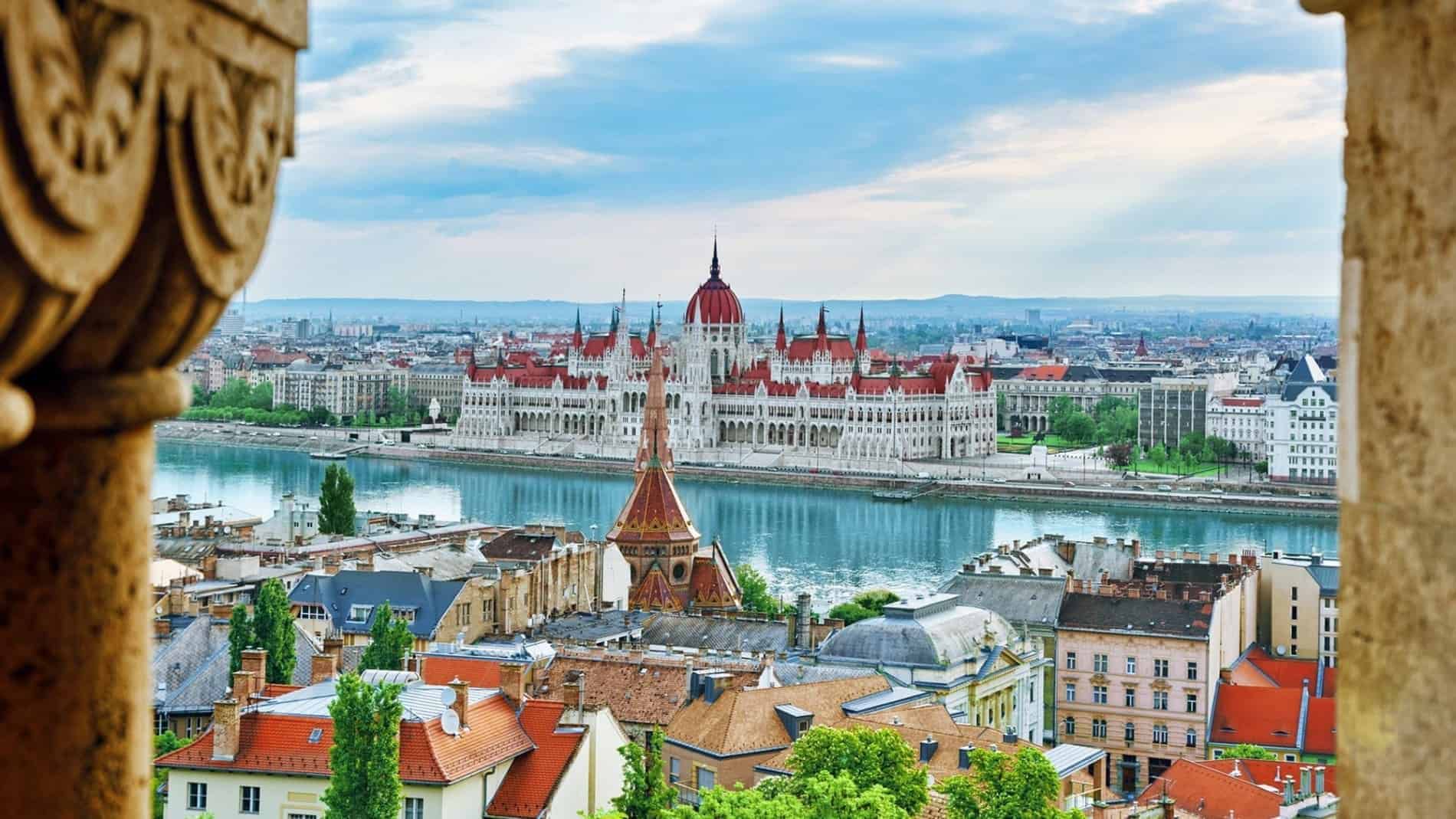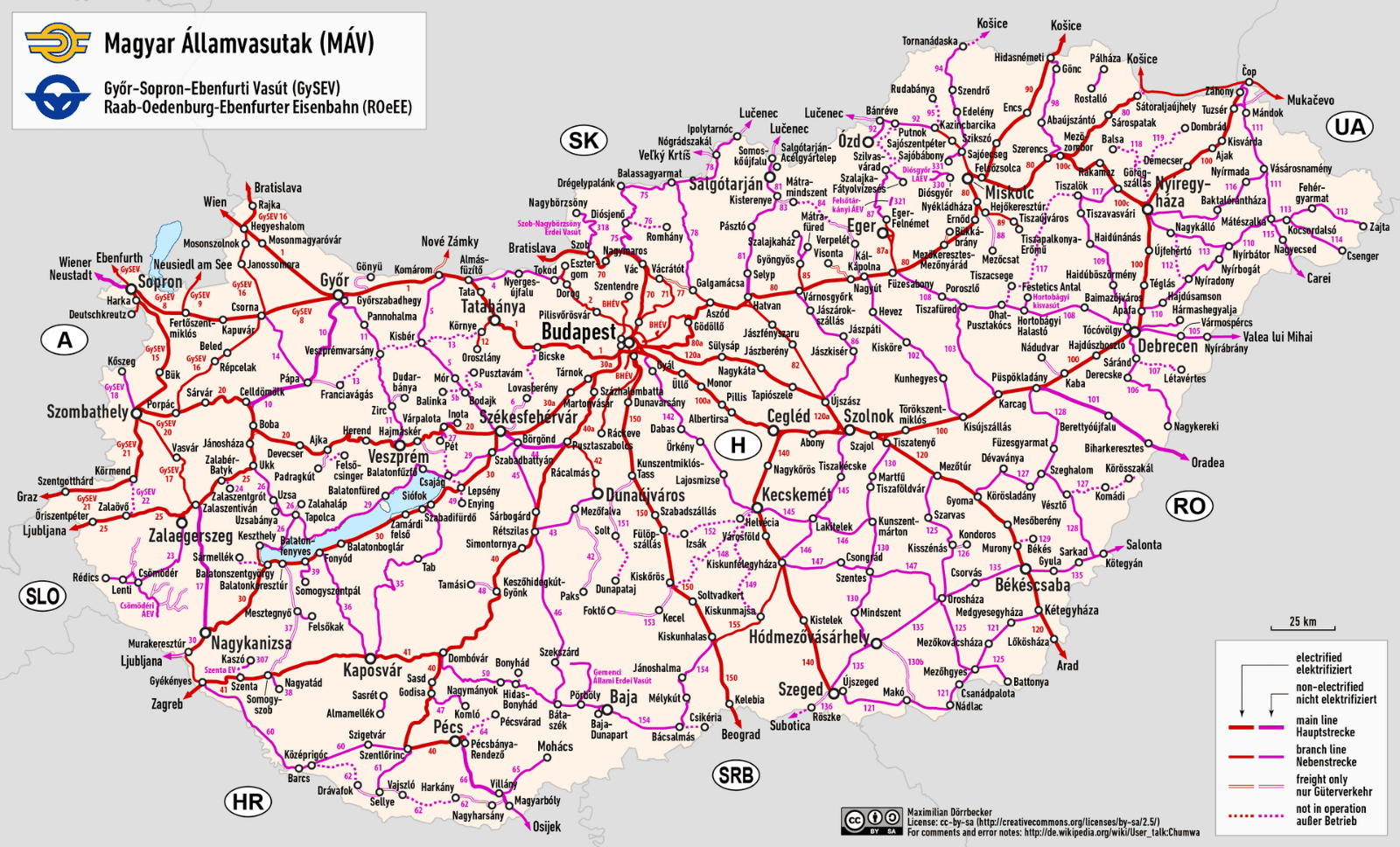
B.F.G. Fabrègue, Ph.D. Fellow in Law & Pawel Morrison de la Bassetière, Ms. Economics. The article was originally proposed to Blue Europe board on the 07/10/2021. Final version reviewed by Manel Bernado Arjona and G. Combot.
When Angela Merkel will leave power in the next few weeks, the longest term holder elected leader still in power in the EU will be Victor Orbán. Orbán actually came to power for the first time in 1998, only to lose the elections 4 year after , and get definitively the power back in 2010. Born in a protestant family in a Roman catholic country, Orbán started as one of the NATO best supporters, only to progressively back down. Yet, while Hungary will probably not leave the EU, its leader is in a heavy confrontational stance with the governing bodies of the Union. How have the relations been degrading that much? What choices has Orbán taken for the future of Hungary?
An (mostly) impeccable economic policy
To understand what is going on in Hungary, we must first understand that Hungary has been enjoying, since president Orbán’s arrival to power, a significant rise and economic conditions improvement. President Orbán has done in general a rather good job with the economy, and it’s one of the main reason he enjoys such a massive support. Some of that has been done thanks to the EU (the EU grants and support have been massive in some fields), but it has been mainly by a somewhat liberal yet supportive economic policies, which have greatly supported the country growth. Hungary has a below-average tax burden of the EU, with tax revenue in Hungary standing at 36.5% of GDP in 2019, seven points below EU average – but more significant is the continuous decrease of the tax burden since Orbán’s election, starting at over 46% and decreasing ever since. One of the poorest regions of the Soviet block, it has now among the highest GDP per capita (after Czechia, Slovakia and the Baltic Countries) among ex-soviet countries. And the best seems yet to come.
The coming decade will bring "great opportunities" for central Europe, Prime Minister Viktor Orbán said Wednesday (the 29/09 ) in Usti nad Labem, Czech Republic, following meetings with his Czech counterpart Andrej Babis. Orbán stated during a joint press conference with Babis that, although central Europe was previously believed to be powerless without Western Europe, it is now Western Europe's economies that cannot function without center Europe, which is the “locomotive of the Union”. The region's political and economic weight will continue to grow, but only with the continuation of Visegrad cooperation, he stated.
Orbán stated that the Czech Republic is "one step ahead of us" in terms of eliminating unemployment, adding that Hungary aspires to have a debt rate as low as its northern neighbor. But even by that standards, Hungary is not in such a terrible situation: Hungary's unemployment rate increased to 4.0 percent in August, up 0.1 percentage point from the previous month and 0.2 percentage point from a year ago, according to figures issued Tuesday by the Central Statistical Office (KSH). This is, comparing to the western EU nations, incredible. The National Employment Service (NFSZ) recorded 256,000 registered job searchers at the end of August, a decrease of 25.8 percent from a year earlier. Additionally, the average wage in Hungary is expected to reach EUR 1,415 by next year (in Gross average monthly salaries terms ), which while being still very low compared to other EU countries, marks a net progress in a post pandemic economic .
A country looking at its own border to start with
At the same conference, Orbán stated that his visit today was focused at bolstering the Visegrád Four's Czech-Hungarian axis of cooperation, noting that the V4 cannot function without the Czech Republic's commitment to the group. “The Visegrád Group need the Czech Republic's strength and political influence,” Orbán stated. Many of them will travel through the Balkans and Hungary, he said, adding that Hungary will continue to protect its own borders in the same way that Europe would. Hungary is prepared to work in the future in close, amicable cooperation with Andrej Babis's government based on mutual respect, Orbán stated. In general, as we already highlighted in our multiple papers about the Three Seas Initiative, the Central European block is developing together. Orbán stated that economic cooperation between the Czech Republic and Hungary had reached unprecedented heights.
This is mostly true, both with Czech Republic and the Visegrad Group in general, as the volume of bilateral commerce increased by 26% this year, and Hungary now has 330 Czech enterprises as foreign investors, employing several thousand people, he said, adding that Hungary aims to expand collaboration in the telecommunications, agricultural, energy, and defense sectors. The latest example of this general cooperation can be found 2 days after the summit in Czechia. SkyModra Aero Vodochody, a Czech maker of light combat and training aircraft, has been acquired by HSC Aerojet, a joint venture between Hungarian investor Kristóf Szalay-Bobrovniczky and Czech corporation Omnipol, according to the website of local business daily E15. HSC Aerojet acquired 100% of Aero Vodochody, which comprises the Vodochody airport, pursuant to a July deal. Dieter John, the former CEO of Vodochody, has been replaced by Viktor Sotona, the CEO of Omnipol group member ERA, which manufactures surveillance and reconnaissance technology. “Aero will continue to invest in all three pillars of its business: aircraft development and manufacturing, aircraft repair and maintenance, and the aerostructures program,” Sotona stated. When Aero Vodochody was privatized in 2007, the Penta Group acquired it.
Rising conflits with the Western EU
Always at in Usti nad Labem, Orbán also called out the EU. “We, central Europeans, are destined for prosperity and will flourish if given the opportunity. We are not seeking further assistance, but rather equitable treatment,” he stated.” It is, however, unjust that eight member states have not yet received access to the EU's post-pandemic rehabilitation budget”, Orbán stated. “This is not a problem of money, but of an inability to compete on equal terms,” he explained. The European Commission makes a distinction between member states, and those who get support eventually fall behind in competition, Orbán stated. If the EU ensures equitable treatment, refrains from abusing its powers, and acts responsibly, central Europe's success story will continue, he continued. “We are engaged in three key conflicts with Brussels,” Orbán are incapable or unwilling to secure their borders and allow migrants to enter freely. “All countries should protect their borders and should seek assistance if they are unable to do so,” he said.
But is Orbán’s vision truth or propaganda? It is for sure a major element of the government communication. Hard to tell – and we won’t take any position -, but for sure not all governments inside the EU support the Hungarian model.
Conflict has been increasing for the last 5 years. During the last EU Commission selection, the previous minister of Justice, László Trócsányi , was probably refused as an EU commissioner because of his loyalty to Orbán. While the relations between Hungary and the others Europeans country has never been idyllic, the tension suddenly exploded in June of this year. Hungary’s parliament passed a law banning gay people from featuring in school educational materials or TV shows for under-18s, as Viktor Orbán’s ruling party intensified its campaign . The measures have been likened by critics to Russia’s 2013 law against “gay propaganda” .
Reactions were almost immediate. The Netherlands' Prime Minister Mark Rutte stated that Hungary must either "leave" the EU or remove the law that prohibits under-18s from watching television programmes and other content that promotes LGBT lifestyles. Luxembourg's prime minister, Xavier Bettel, said he would face Mr Orbán, whose “autocratic” (sic) reign has sparked EU concerns about Hungary's rule of law, and he would he would be 'intolerant in the presence of intolerant individuals.' ( The Telegraph) Mr Bettel also stated. "If he truly believes that watching a video or speaking about sexual orientation in a classroom automatically makes you gay, he truly does not comprehend anything. Accepting myself as gay was the most hardest part... To be told today that it's because I saw something on television when I was younger is intolerable. And it is also immoral to conflate paedophilia and pornography with homosexuality ",
The Hungarian bill "contradicts our ideals and what Europe is," French President Emmanuel Macron said, urging other EU members to show "no softness" in opposing Mr. Orbán. Ursula Van Der Leyen, EU Commission Head, called the law a “utter disgrace”. EU NGO groups such as Liberties have been publicly opposing the law.
Several Eastern European governments (10 out of the 27 members of the EU), on the other hand, refused to join the condemnation .
Last July the 15th, the European Commission filed a lawsuit against Hungary for policies it claimed discriminated against LGBT individuals, escalating a clash of values with Prime Minister Viktor Orbán that threatens to jeopardize Budapest's EU financing. The infringement actions are the latest action in a cultural conflict between Brussels and some of the EU's newest members in Eastern Europe over a range of fundamental concerns, including the rule of law and press freedom. Infringement proceedings initiated legal proceedings to compel member states to comply with EU law. Hungary had months to answer; if they did not, the Commission could have refer them to the European Court of Justice. Yet, Orbán answered exactly one week later, July the 21th, by indicting a referendum on the exact same issues.
Judith Varga, the new minister of Justice also in charge of EU affairs, clearly criticized the tools used by the EU to remove the aforementioned law. The arrival of the EU Parliament team to investigate the existence of LGBT rights violation , headed by the Dutch MEP Judith Sargentini, has prompted another comment by the young Hungarian minister. “ arrived in Hungary on Thursday morning with a verdict prepared in advance," Justice Minister Judit Varga said “Be under no illusion: an election campaign is under way also in Brussels in connection with the 2022 Hungarian parliamentary election with the aim to help the opposition,” The European Parliament, she continued, is one of the EU's institutions that lacks authority over a sovereign state.
Without much doubt, there won’t be any future friendship between the EU and Hungary. And Orbán will, without much doubt, largely win the next elections in 2022. All other parties, from the ex-Nazi Jobbik to the Socialist party of Hungary, have formed a joint list, dubbed in the Hungarian medias as the “megalist”. While this list, at the start, seemed t able to compete with the Fidesz, later polls have shown a clear lead of the Fidesz. Even more, all commentators expect a decline in this joint list when the official leader will be chosen next October. According to a confidential document Blue Europe has obtained, the poll institute Nézőpont currently estimates there is a major electorate departure of right wing electorate from the Jobbik to the newly constitute Mi Hazank. Mi Hazánk Mozgalom has been formed by Jobbik activists that refused to join the “megalist” movement. Long story short, Orbán will almost certainly win the election.
Orbán, an unexpected friend of China
But Orbán and the Hungarian government is very well aware that the (future) lack of EU support is extremely problematic for his country’s development. EU funds do fund the Hungarian economy, and without them the country growth would be, at least partially, hampered. Orbán has chosen a long time ago, another possible ally, China.
The Hungarian government's unwavering support for Beijing extends all the way back to 2010, when the Fidesz party reclaimed power following two terms in opposition. Hungary hosted a series of high-profile meetings with China, signed cooperation agreements, and attracted Chinese investment long before concerns about Chinese influence were on anyone's radar in Washington or Brussels. Huawei stated in June 2011 that it would create its European logistics center in Hungary – which it has since. Additionally, the Chinese corporation acquired Borsodchem, a significant Hungarian chemicals maker, in a $1.66 billion deal.
Hungary was the first European country to sign a memorandum of understanding on China's Belt and Road Initiative (BRI) in 2015, setting the bar high. Later, Orbán referred to Hungary as a "pillar" of the BRI. To date, the Initiative's most visible incarnation has been the Chinese-funded construction of a new railway connection between Budapest and Belgrade, ostentatiously constructed to improve connectivity between Greek ports bringing in Chinese commodities and European markets. The contract, valued at $1.9 billion, is kept secret in its terms.
However, there has always been another issue with Orbán's recurrent huge bets on increasing Hungary's ties with China: For a long period of time, the cooperation failed to produce any significant result, as noted by Dalibor Rohac of the American Enterprise Institute. China contributed for just 1.5% of Hungary's exports in 2019, or $1.79 billion. Similarly, investment flows ($194 million from China and $426 million from Hong Kong in 2019) were a drop in the bucket compared to other Asian nations such as Japan ($1.5 billion), Korea ($3.3 billion), and Singapore ($557 million). Despite the pandemic, officials in Hungary predicted that 2020 would be different, with a record number of new investment projects establishing China as the country's largest foreign investor. Nothing similar happened according to preliminary results.
Nonetheless, overpromising and underdelivering is a well-established trend for Chinese economic outreach in Central Europe, most notably in the Czech Republic, where the now-defunct CEFC investment group established relationships with senior political leaders, including President Milo Zeman. As the economic gains dwindled, Czech critics of China were able to speak out more forcefully, culminating in Speaker of the Senate Milo Vystril's formal visit to Taiwan.
By comparison, despite the limited benefits of Hungary's connection with China to date, Orbán has acted as the RPC's most consistent European partner. “It is an understatement to say that the relationship between China and Hungary is at its peak,” Foreign Minister Péter Szjjártó stated in 2019. “It has always been good, but now it is at its best.”
A very supportive partner ?
Hungary has consistently rejected EU measures and comments aiming to condemn China actions over the years—in 2016 on the South China Sea, in 2017 on detained Chinese attorneys' abuse, and in 2018 on human rights. While the EU has been able to implement a sanctions framework in response to human rights violations in Xinjiang, it was with great difficulty. Hungary has vetoed not only a statement on Hong Kong from EU foreign policy boss Josep Borrell, but also a move by the EU's foreign policy arm to bolster up a package on Hong Kong. Additionally, it obstructed a cohesive approach on Israeli-Palestinian military clashes last month.
Orbán derided such initiatives as "politically insignificant and foolish," :heHe chastised what he referred to as the "statement-generating foreign policy bureaucrats" in Brussels, adding: "If it is submitted another hundred times, the same outcome will occur a hundred times."
Budapest has emerged as the country standing in the way of the EU taking action — or even issuing a statement — in response to Beijing's widespread crackdown on Hong Kong's pro-democracy movement. For Germany, Orbán's defiance means that the EU's entire foreign policy decision-making process must be altered away from unanimity in favor of qualified majority voting among the 27 member countries. This will of course not happen, as most countries fear the German imperialistic resurgence. Orbán is impervious to EU colleagues' pressure and has ratcheted up his rhetoric on how other European countries are being "frivolous" in criticizing Beijing on human rights. The website of the Hungarian government expressed that it wasleading the charge against the "re-emergence of Cold War ideas and culture in global politics" and dubbed EU foreign policy a "laughing stock."
The Hungarian government is certain to face increased scrutiny under the Biden administration. Not only does China remain the focal point of US foreign policy, but unlike during the Trump administration, the current president is vocal about the importance of the rule of law, democracy, and human rights in America's engagement with its allies. However, the extent to which Biden's America has the leverage necessary to halt and reverse Hungary's increasing Sinicization is an unanswered question, and a question left to answer
The Hungarian rail in the Silk Road initiative
On a more immediate level, China views Hungary as fertile ground for its divide-and-rule strategy and has initiated a slew of cooperative projects. And one of the most obvious Chinese implication in the Hungarian rail development can be found in Hungarian railways.

It is first important to point out that, unlike what some ungenuine critics are saying, Orbán is not the puppet of China (or Russia, or the US, or any other country). For Orbán, international politics is the continuation of internal politics, and both are usually aligned in a harmonised solution. One example of such continuity is the railroad system, which Hungary has kept upgrading and renewing for the best part of the last 10 years.
The government has allocated 30 billion forints (EUR 85.6
Read the full article

